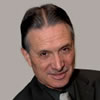Last month Jerry Nickelsburg, senior economist with the UCLA Anderson Project, held forth at the University of California Sacramento Center on key themes involving recession and recovery.
Nickelsburg agrees that we are in a “deep recession,” in contrast to those of 2001 and 1990, which were “very mild recessions.” He denies that the current recession is the worst since the Great Depression, and he wonders about the alleged recovery.
The National Bureau of Economic Research claims the recovery started in June 2009. Unemployment claims data is an important marker of recovery, but Nickelsburg notes that “unemployment hasn’t really budged.” He said it is “harder to find a job now,” a reality many Californians know from experience. Worse, we are “missing two drivers to get us out of recession.” Those drivers, he said, are manufacturing and residential construction.
As far as manufacturing, Californians are now “more reliant on imports,” and this involves “sending good times to other countries.” In residential construction, “California is under-building,” said Nickelsburg, who notes that “household formation has dried up,” and that “household size is up.” We are “one year behind in building houses” and he sees “potential demand on the coast.” The state will get residential construction back to average levels, he said, “by the end of 2013.”
Nickelsburg sees no “policy-induced double-dip [second recession],” on the way. In the next three years, by his estimation, California will grow faster than the United States but “we have a long way to go.”
The UCLA economist also compared California with Texas, which, while not taking jobs from California, as some argue, is “doing better” with “lower unemployment.” He notes that there was “no housing bubble in Texas,” and that “Texas is not known for expanding government.”
California, as it happens, is good at expanding government and even in a deep recession has failed to eliminate agencies that hinder recovery. Consider residential construction, a key driver of recovery. Mr. Nickelsburg sees demand on the coast, but that fails to take into account the California Coastal Commission, a corrupt, redundant agency that has made coastal development practically impossible. The zealots of the CCC want the coastal region to look like it did around the time of the Peloponnesian War.
California is also good at expanding environmental regulation. Nickelsburg told the UC gathering that “environmental regulation can create or destroy jobs,” but the economist provided no examples of such regulation creating jobs. Neither did he delve into AB 32, the California Global Warming Solutions Act of 2006, which turns back the clock a couple of decades and is far more likely to destroy jobs than create them. Whatever our unelected regulatory bosses say in public, they don’t want more economic growth in California because they believe such activity will heat up the planet.
Nickelsburg took pains to remind the audience that California has a lot going for it. We produce good wine and do well on medical research, he said, and tourism is increasing. His optimism is welcome but given our economic malaise, and our anti-growth regulatory regime, we doubtless have a lot farther to go than he thinks.

